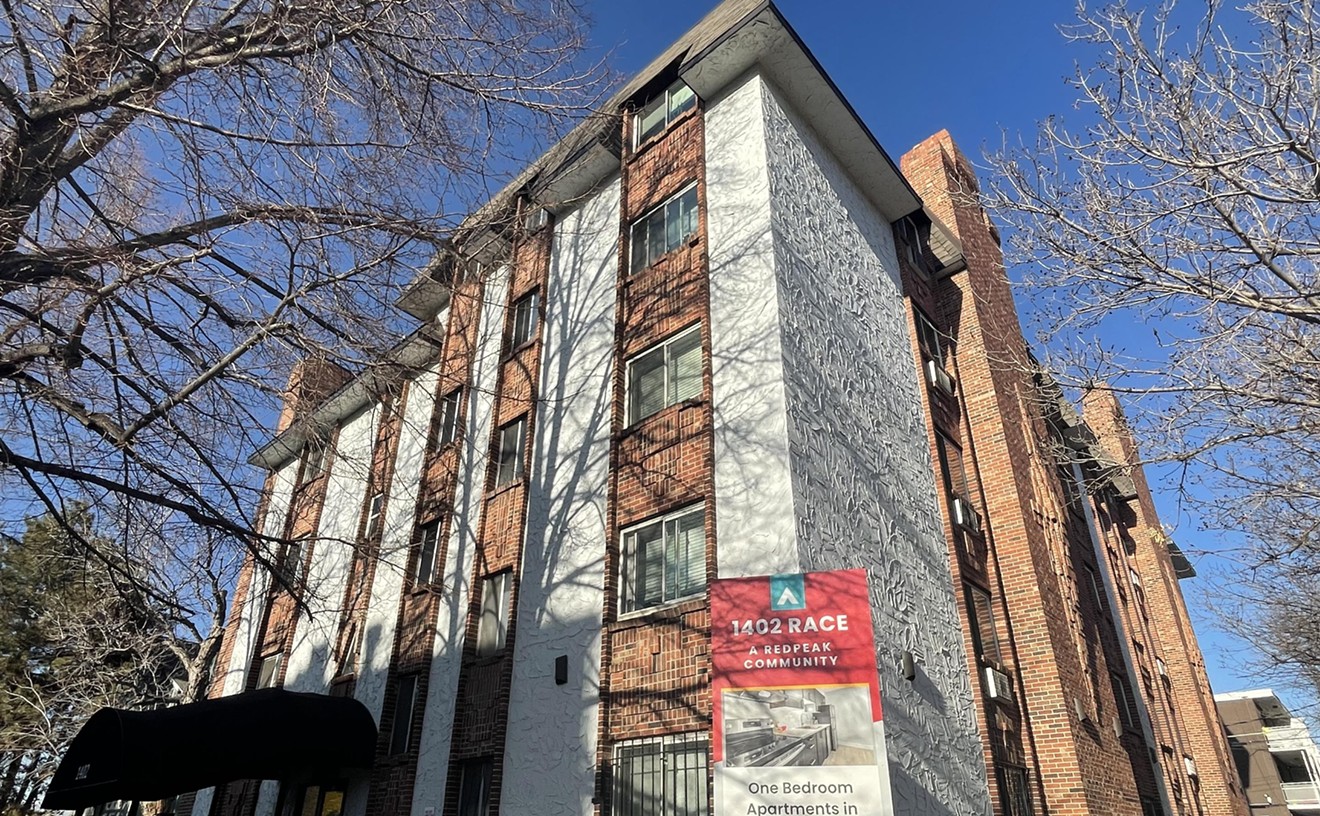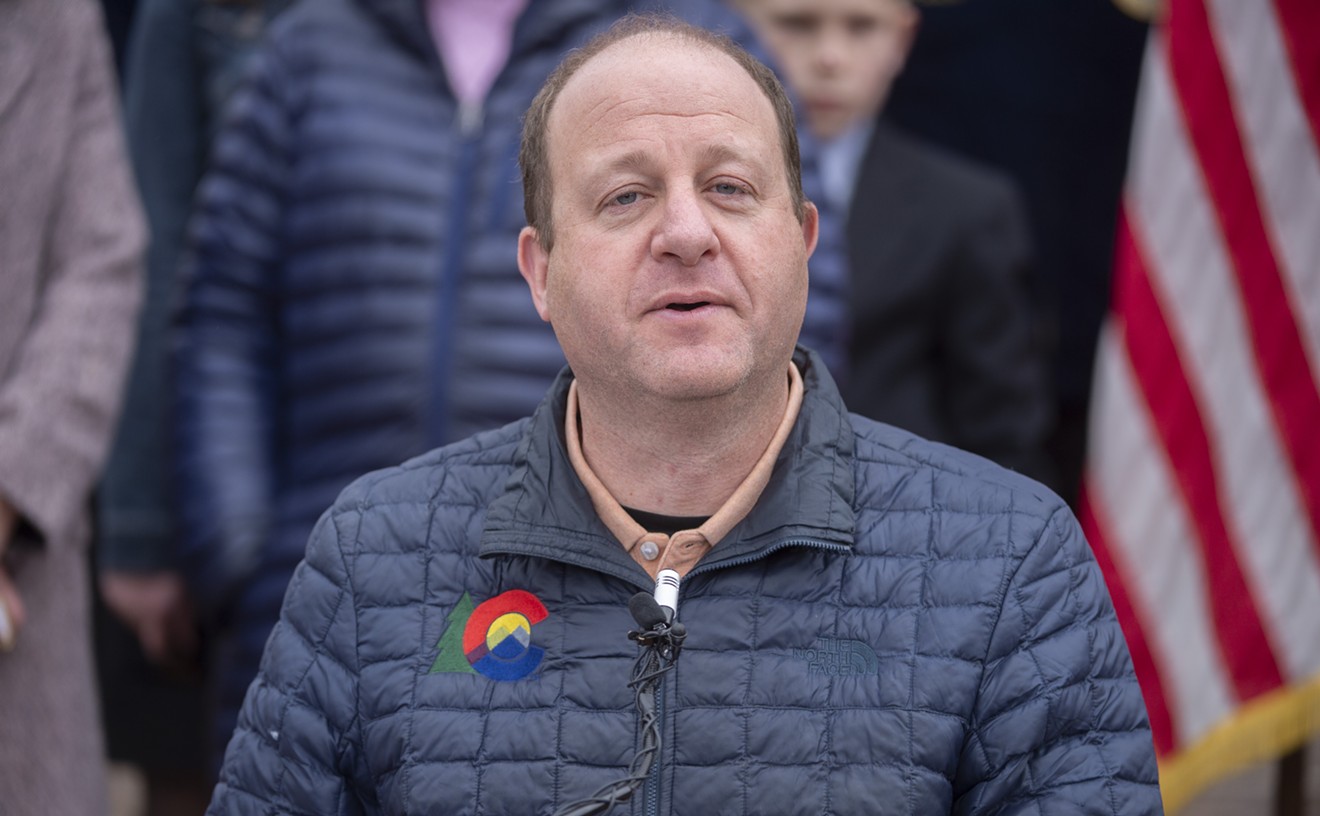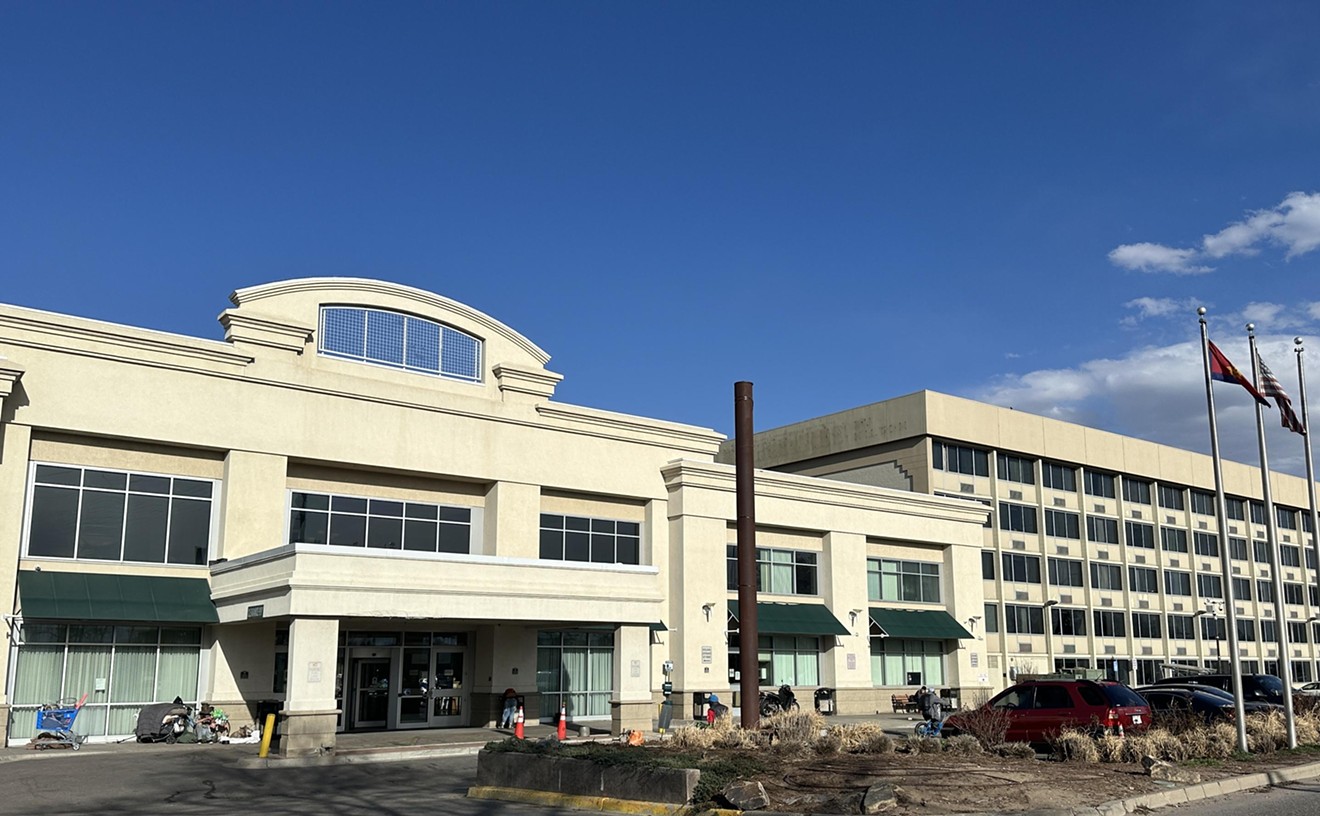Blair was equal parts shrewdness and obtuseness. He understood TV's power to extend the reach of his ministry long before most televangelists discovered toll-free numbers or powder-blue leisure suits. He also knew real estate, dealing prime land at First and University (site of the future Cherry Creek shopping bonanza) for the seed money to build his temple a few blocks away.
But Blair had a hard time putting brakes on his ambition or admitting when he had overreached.
Blair pursued his idea for Life Center, an abandoned chiropractic facility he wanted to transform into a senior complex, even as more financially savvy advisers told him the project was headed for insolvency. In the early 1970s, he peddled securities to elderly parishioners to finance the scheme, assuring them that their money couldn't be safer, even as the Securities and Exchange Commission was concluding that Life Center was turning into an elaborate Ponzi scheme. In the face of overwhelming evidence that he'd deceived and trimmed his own flock in an effort to keep his dream alive, he denied that he'd ever defrauded anyone -- and oh, never mind the conviction on seventeen counts of security fraud. It was all a misunderstanding, a "technical violation" on his part.
If the story had ended there, with the disgrace of bankruptcy and probation, it might well have been just a footnote to Blair's substantial good works. But Blair vowed to pay back the investors who'd lost their life savings in Life Center, and the plot merely thickened.
In the 1980s, Blair launched a high-profile campaign to repay "distressed" investors. The whole thing erupted in a second scandal when it turned out that much of the money went to Calvary Temple itself and select insiders -- including a token payment to (tsk, tsk) Charles Blair. Facing lawsuits over the fundraising effort, in 1991 Blair reached a $700,000 settlement with a core of embittered (and, in many cases, still distressed) investors. Another $1.5 million in debt remained -- not a legal debt at this point but a moral one, since Blair had promised once again to do what he could to repay the rest.
Blair never made good on that promise. Some of the investors made peace with him and forgave the debt. Others did not. Several died without ever seeing another dime in recovery. Blair went on to do God's work in Ethiopia and to celebrate fifty years in the pulpit, but not another peep was ever made about paying back the rest of the dough. When a parishioner pressed the issue -- see my 1999 story, "Amazing Disgrace" -- Blair denied that he ever intended to pay back the people who sued him, whom he regarded as enemies of his church.
Blair wrote a book about his Life Center debacle called The Man Who Could Do No Wrong. Despite the irony inherent in the title, it was a largely self-serving, revisionist account that excused him of any conscious wrongdoing. Certainly, Blair was someone who thought big and achieved bigness in many things. But it would have taken a bigger man, perhaps, to do what he failed to do with the cup that was handed him, on his own particular Calvary.
A bankruptcy judge forgave his debt, and another judge discharged his probation. Whether the whole matter now goes to a higher court is really a matter of what you believe. But you have to figure Pastor Blair died prepared, as always, to plead his case.











